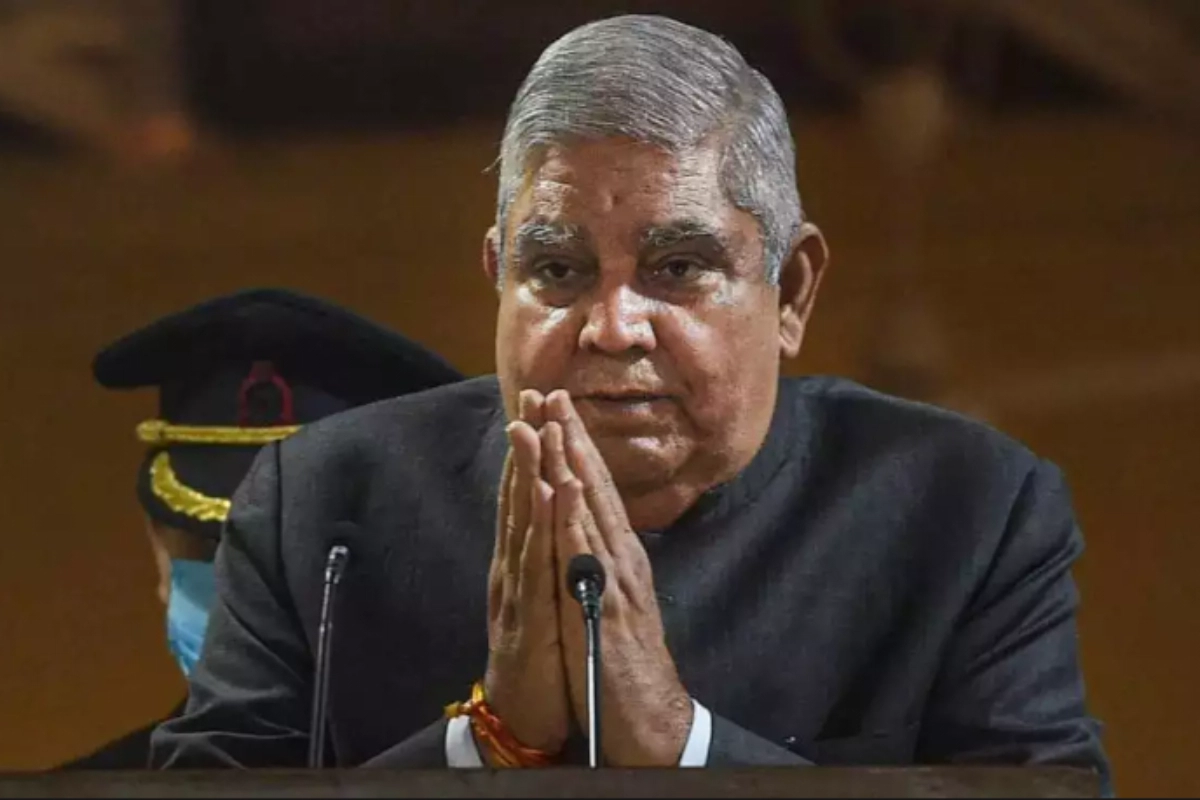After Vice President Jagdeep Dhankhar’s first address in the Rajya Sabha, the Government vs Supreme Court tussle over the appointment of judges has again come into limelight. In his first address as Chairman in the Rajya Sabha, Vice President Dhankhar mentioned the National Judicial Commission Act (NJAC). It was passed unanimously by both the Houses of Parliament. The Supreme Court had rejected the bill in the year 2015. Dhankhar termed it as a serious compromise of parliamentary sovereignty and disregard of people’s mandate.
He said, “It is worrying that an issue so vital to the democratic fabric, so vital, has not received any attention in Parliament for more than seven years now. This House, together with the Lok Sabha, is trying to pass a people’s ordinance.” Being the custodians of, we are bound to address this issue, and I am sure that it will do so.The law was struck down by the Supreme Court.
The historic NJAC Bill passed unanimously by the Parliament, was “undone by the Supreme Court”, said the Rajya Sabha chairman, terming it is a “severe compromise of parliamentary sovereignty and disregard of the mandate of the people”.
It is disconcerting that on “such a momentous issue, so vital to democratic fabric, there has been no focus in Parliament, now for over seven years… This House, in concert with the Lok Sabha, being custodian of the ordainment of the people, is duty bound to address the issue, and I am sure it will do so,” he said.
NJAC Bill passed in 2015
The NJAC Bill, passed in 2015, gave the government a role in judicial appointments, which for two decades had been the purview of the Supreme Court through the collegium system. The law was challenged in court. It was argued with the petitions that this would compromise the independence of the judiciary. Subsequently, a constitution bench struck down the law, pointing to the Emergency of 1975-77 imposed by the then Congress government.
Dhankhar, who has raised the issue in the past as well, said “any intrusion by one institution into the domain of another has the potential to disturb governance”, adding that care should be taken that any constitutional framework in a democracy. The basis of this is to maintain the primacy of the mandate reflected in the Parliament. He said, a law passed by the Parliament reflects the will of the people, it was struck down by the Supreme Court and people have no idea about it.
Also Read – International Indigenous day 2022: Everything You Need To Know
Keep watching our YouTube Channel ‘DNP INDIA’. Also, please subscribe and follow us on FACEBOOK, INSTAGRAM, and TWITTER.











